
You know the struggle. Your attempts at tidying up always seem to be in vain. No matter how often you declutter, clutter seems to creep back in. But don’t despair – with some proactive habits, and expert decluttering tips you can cultivate a clutter-free sanctuary. Preventative measures are key. By establishing daily routines, designating homes for your stuff, and regularly purging the excess, you can stop clutter from taking over your home. Invest in storage solutions that make organization a breeze.
Limit impulse purchases and be mindful of what you bring into your household. Maintain the mindset that less is more. Involve the whole family and get everyone on board. With some concerted effort toward prevention, you can master the art of keeping chaos at bay.
1- Establish A Daily Routines

Establish daily routines, such as making your bed every morning, putting items back in their designated places, and tackling small cleaning tasks regularly. Consistency in these habits can significantly contribute to a clutter-free home.
Cultivate habits that prevent clutter from taking root. Develop daily routines, such as making your bed every morning, putting items back in their designated places, and tackling small cleaning tasks regularly. Consistency in these decluttering tips can significantly contribute to a clutter-free home.
2- Designate Homes for Items
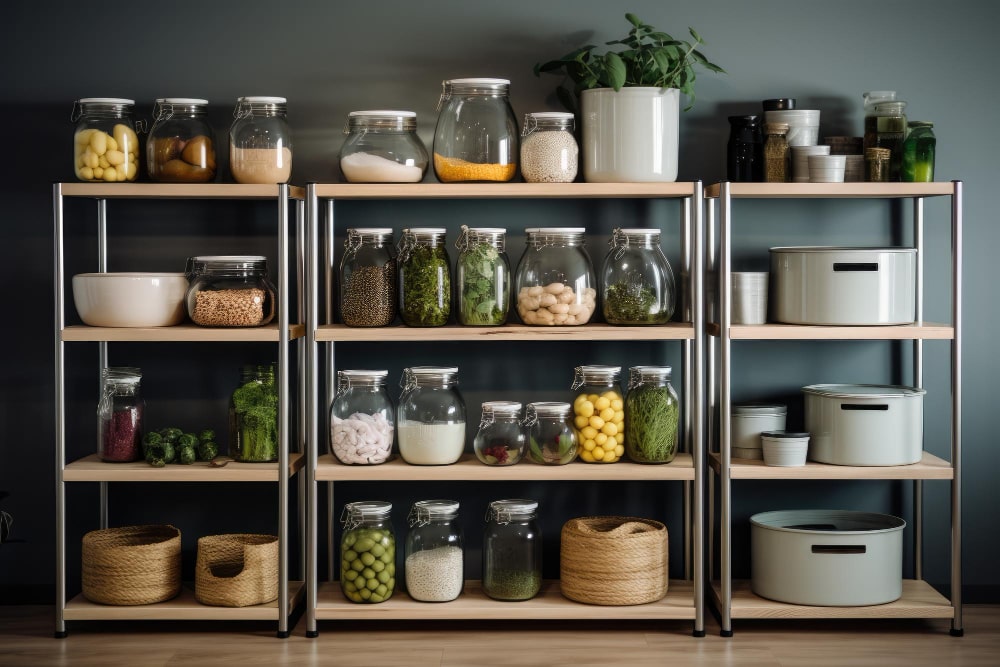
Assign specific homes for every item in your house. This not only makes it easier to find things but also prevents items from being strewn around randomly. When everything has a designated spot, family members are more likely to return items to their proper places.
- Give each belonging a designated home, like a drawer, cabinet or closet. Make it a habit for your household to put things back in their spot.
- Group similar items together in labeled bins or baskets for storage in a closet or cabinet. This contains clutter in one area.
- An item without a home will likely end up out of place. Take time to organize and you’ll reap the rewards of a tidy space.
3- Regularly Purge Unnecessary Items
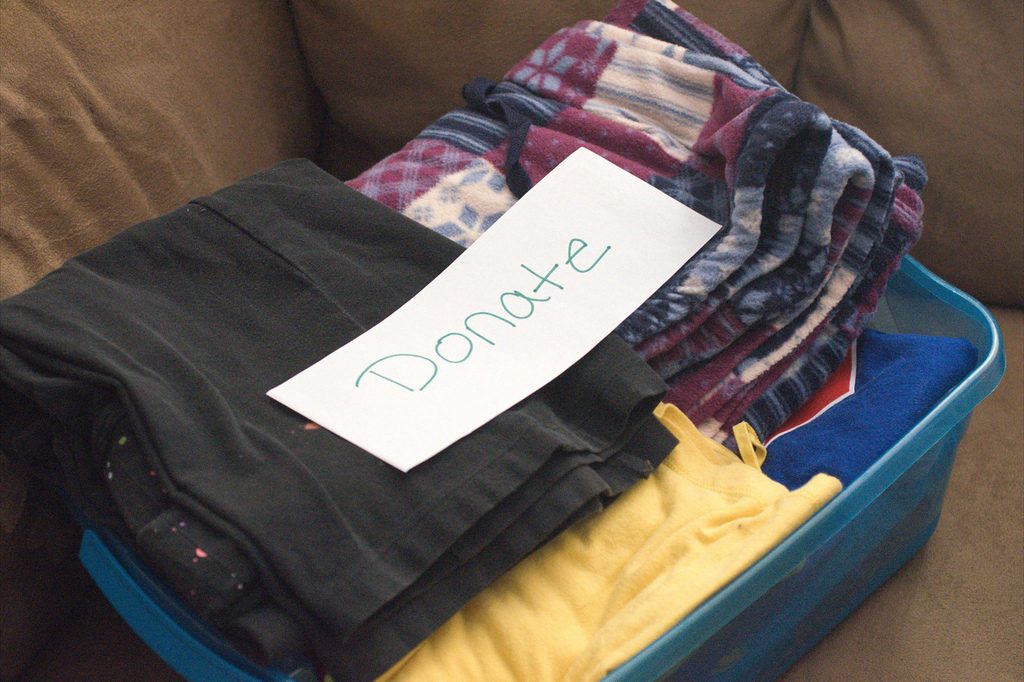
Conduct regular assessments of your belongings and declutter as you go. Donate, sell, or discard items that no longer serve a purpose or bring you joy. This ongoing process prevents unnecessary accumulation and ensures that your living space remains streamlined.
4- Invest in Storage Solutions
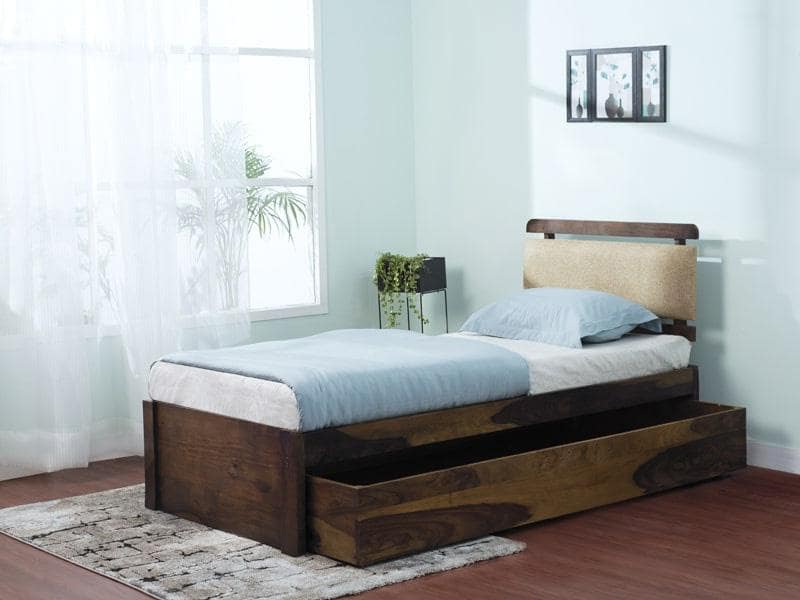
Click here to rent bed shown in picture: https://cityfurnish.com/things/3867/belle-single-bed-with-storage
Optimize storage space with effective solutions like shelves, cabinets, and storage bins. Having designated spaces for various items minimizes visual clutter and makes it easier to maintain an organized home.
5- Limit Impulse Purchases
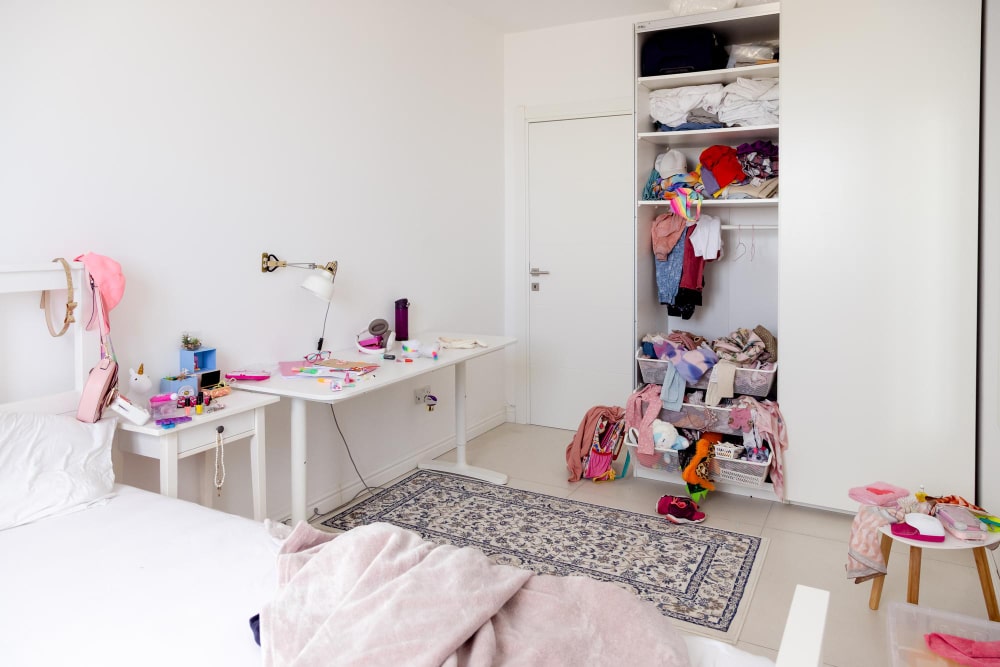
Before buying something on a whim, ask yourself if you really need it. Resist making spontaneous purchases that serve no purpose other than instant gratification. Impulse buys often end up as clutter or regrets. By using these decluttering tips and being mindful of your spending, you can avoid accumulating excess stuff.
6- Implement the “One In, One Out” Rule
For every item you bring into your home, get rid of an existing one. Downsizing your belongings ensures your space doesn’t become overrun with excess stuff. As you acquire new things, purge something you no longer use. Donate or throw out old clothes, books you’ve already read, knickknacks collecting dust. Getting rid of clutter a little at a time prevents it from accumulating and helps maintain a tidy, organized space.
7- Create Decluttering Zones

Designate specific areas or zones in your home where decluttering is a priority. For example, have a designated space for sorting and processing mail to prevent paperwork from piling up in various areas.
8- Regularly Review and Adjust
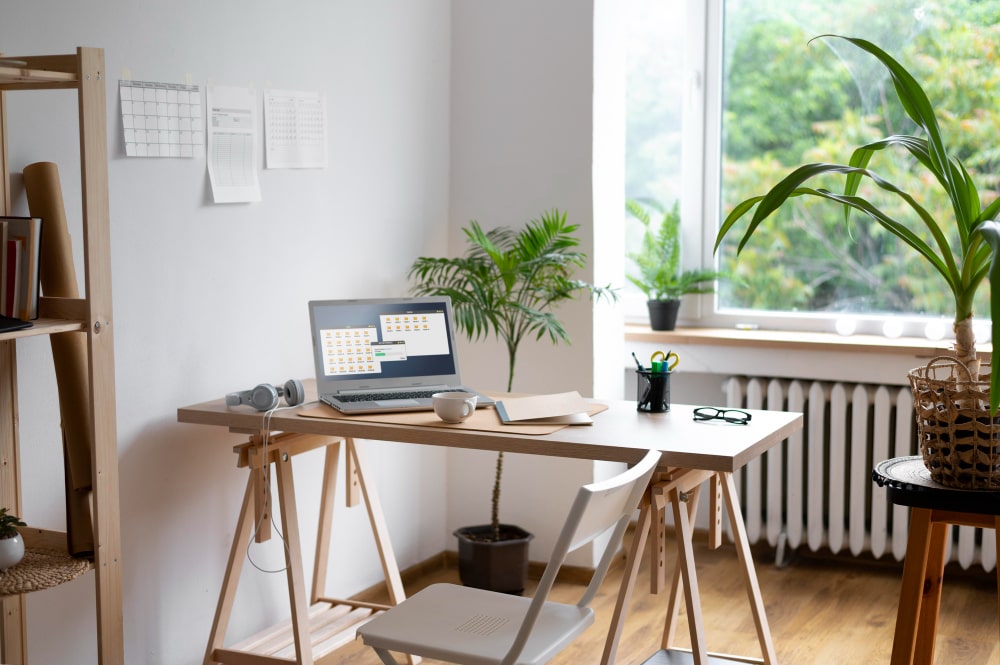
Life changes, and your needs change along with it. Make a habit of regularly re-evaluating your organizational systems and decluttering efforts.
As your lifestyle evolves, you may find certain storage solutions or routines no longer effective. Adjust them accordingly to prevent buildup of clutter in areas that are no longer suitable. By using these Staying on top of these reviews and tweaks will ensure your home remains a clutter-free zone.
9- Involve the Entire Family

Make decluttering a family affair. Involve everyone living in the household in maintaining a tidy home. Establishing a collective commitment to clutter prevention ensures that the responsibility is shared, making it more likely for habits to stick.
10- Practice Mindful Consumption
Before acquiring new items, ask yourself if they align with your values and contribute positively to your life. Consider whether that new shirt or gadget will add meaning or just clutter. Choosing purposefully prevents impulse buys and excess stuff.
Involve the Whole Family in Decluttering and Decluttering Tips for a Neat House
Involve everyone in maintaining a clutter-free home. Establish collective habits and routines, designating specific responsibilities for each family member.
Divide and conquer – Assign rooms or tasks for each person to declutter and clean. Tackling the workload together makes quick work of chores and fosters shared accountability.
FAQs
1- Do you really need to develop a decluttering routine?
Absolutely. Establishing daily habits and routines focused on clutter prevention are key to maintaining a tidy home. Without consistency, clutter can easily accumulate and overwhelm your space.
2- How often should you purge unnecessary items?
Aim for regular decluttering, such as going through your closets, drawers and storage areas seasonally or a few times a year. Get into the habit of assessing what you own and donating or discarding things you no longer need or use. An ongoing purging process is most effective at curbing excess accumulation.
3- What are some storage solutions that actually work?
Invest in practical storage solutions, like shelving, cabinets, drawer dividers and lidded storage bins. Having a place for everything makes it much easier to keep your space organized and prevents a messy, cluttered appearance.
4- How do you limit impulse purchases?
Before buying something, ask yourself if you really need it and will use it. Wait 24 hours to make the purchase; this can help avoid regrettable impulse buys. Unsubscribe from store marketing emails and sales alerts which can fuel the urge to spend impulsively. When shopping, make a list and stick to it.
5- What does “mindful consumption” mean?
Mindful consumption means being intentional and deliberate with your purchases. Buy only things that align with your needs and values. Ask yourself questions like “How will this enrich my life?” and “Do I already have something that serves this purpose?” This mindset helps curb excess spending and the accumulation of unnecessary items.
Take Away
The key is consistency. Making time every day to tackle those small tasks like putting things away or tidying up one area prevents mess from accumulating. When decluttering and organization become ingrained habits, you’ll find your home naturally stays neat and clutter-free without requiring massive overhauls. Make it a family effort by getting everyone on board. Daily focus and collaboration are your best tools for maintaining a clean, decluttered home over the long run.

